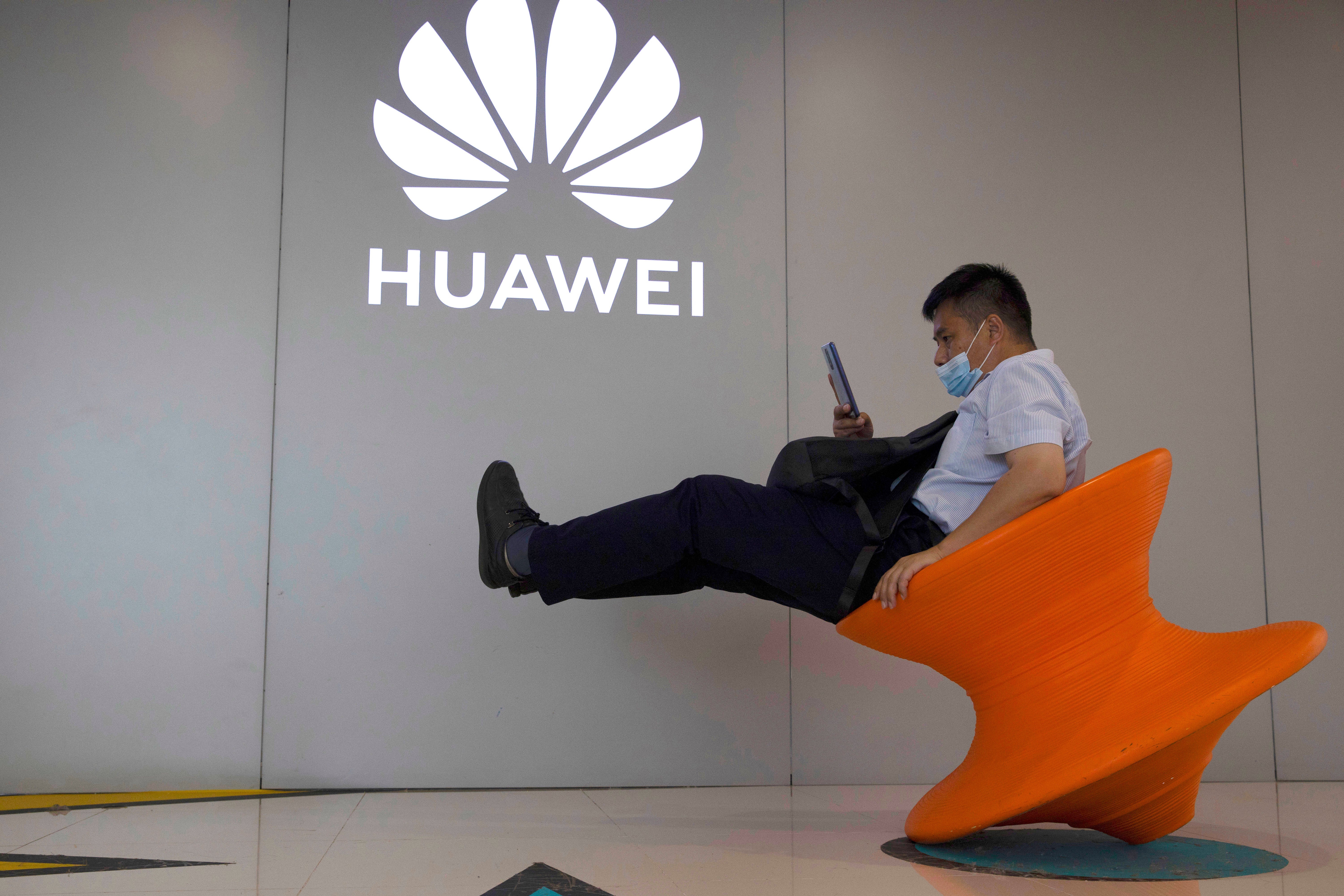Huawei's Q1 sales down 14% as U.S. sanctions remain
Chinese telecoms equipment and smartphone maker Huawei has reported its sales fell 14% in the last quarter from a year earlier, as the company continued to pump money into research and development while grappling with U.S. sanctions

Your support helps us to tell the story
From reproductive rights to climate change to Big Tech, The Independent is on the ground when the story is developing. Whether it's investigating the financials of Elon Musk's pro-Trump PAC or producing our latest documentary, 'The A Word', which shines a light on the American women fighting for reproductive rights, we know how important it is to parse out the facts from the messaging.
At such a critical moment in US history, we need reporters on the ground. Your donation allows us to keep sending journalists to speak to both sides of the story.
The Independent is trusted by Americans across the entire political spectrum. And unlike many other quality news outlets, we choose not to lock Americans out of our reporting and analysis with paywalls. We believe quality journalism should be available to everyone, paid for by those who can afford it.
Your support makes all the difference.Chinese telecoms equipment and smartphone maker Huawei's sales fell 14% in January-March from a year earlier as it pumped money into research and development while grappling with U.S. sanctions, according to figures released by the company Thursday.
Huawei Technologies said its revenue was 131 billion yuan ($19.8 billion) in the first quarter of 2022, compared to 152.2 billion yuan a year earlier.
Its net profit margin for the quarter was 4.3%, down from 11.1% in the same quarter of 2021.
Huawei’s rotating chairman, Ken Hu, said the figures were “in line with forecasts.”
”Our consumer business was heavily impacted, and our ICT infrastructure business experienced steady growth,” he said.
In 2019, Shenzhen-based Huawei was placed on a trade blacklist that restricted American companies from doing business with the major provider of network equipment and smartphones. The sanctions have hit Huawei hard since it relied on Google services and other essential technologies for its handsets.
Once the world’s largest smartphone maker, Huawei fell out of the top five brands in 2020 due to the sanctions, and in 2021 similarly fell from China's top five as it grappled with a chip shortage.
The company has since invested heavily in research and development, spending some 142.7 billion yuan ($21.6 billion) to develop new technologies as it sought to carve out new business areas less vulnerable to sanctions. Its R&D spending is 22.4% of its sales — outpacing rivals such as Samsung and U.S. tech companies such as Apple.
Earlier this week, at its annual analyst summit, Hu reiterated Huawei's commitment to developing new business areas such as cloud computing and 5G.
Since it was put on the U.S. blacklist, Huawei has also developed its Huawei Mobile Service platform as a workaround for its lack of Google services. The platform allows developers to launch apps for Huawei devices, although Google apps such as YouTube can only be accessed via shortcuts that take users to its mobile site.
The company also sold off its lower-priced Honor smartphone brand in November 2020, hoping to revive its sales by insulating it from the sanctions on Huawei.